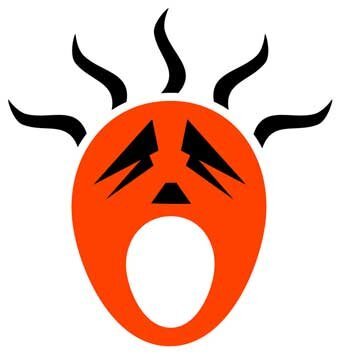A new health ethic
When health is absent, wisdom cannot reveal itself, art cannot manifest, strength cannot fight, wealth becomes useless, and intelligence cannot be applied.
Herophilus
Have you ever been beaten up and abused by that sinister cultural force called “the work ethic?”
Of course you have.
We’ve been raised from birth to believe in the power of labor to transform ourselves and better our worlds. We’re taught to strive and push and extend ourselves from cradle to grave in everything from athletics to business. We’re told that any time spent in rest, rejuvenation or self-interest is a violation of the social contract. If we devote our time to self-care, meditation or similar practices, our behavior is often labeled as “selfish.” We are expected to give the lion’s share of our lives to the welfare of the larger group. If we fail in this respect, we may wind up abused, ostracized or unemployed.
Back in the early days of agriculture, this ethic did make a certain amount of sense. Life, after all, was a stark physical challenge. The land would produce sufficient food, but only when tended with hard continuous labor. Every day demanded physical effort; there were fields to be tilled, planted and harvested and animals to be cared for. Everyone in the community had to pitch in to help create the food and goods that made the whole enterprise possible. It was hard work, but it worked.
Even better, there was a health payoff to the labor. Traditional forms of work were highly physical and as a consequence, were largely health-promoting. Farming, crafts, cooking and construction demanded physical engagement. Vigorous physical activity made people stronger. This was a clear win-win.
But then, almost overnight, the nature of work changed radically and today, much of our work has become distinctly health-negative. This is the paradox of our labor-saving industry: very few of us now hold jobs that actually make our bodies stronger. In fact, most of us are forced to work in occupations that plunge us into a perfect storm of stress, cognitive overload and sedentary postures. Numerous studies have demonstrated that prolonged sitting–the dominant position for most of today’s occupations–is a very real threat to health. Public health advocates now tell us that “sitting is the new smoking.” In this kind of environment, working harder means compromising our health.
Obviously, this is a lose-lose situation. Chronic sedentary labor tweaks our blood sugar, ruins our sleep, depletes neurotransmitters, wrecks relationships, inclines us towards poor health practices and sucks the joy out of life. It contributes to heart disease, obesity, depression and neurological disorders. In turn, it becomes a drag on the health and prosperity of families, communities and entire nations.
stress-face
In far too many cases, chronic sedentary work is no longer ethical in any meaningful sense. In fact, just the opposite. Stress-related diseases and dysfunctions are expensive for everyone. Not only does habitual work exacerbate a wide range of diseases, it also obscures our vision of the wider world. When the bulk of our time is spent with our heads down, focused exclusively on narrow, specialized tasks, we miss the wider world of our experience. In a way, we go blind, just at the time when panoramic vision is essential for our survival.
Clearly the work ethic has run its course. We no longer live in an agricultural economy that demands hard physical labor. Instead, we live in a hyper-connected, always-on world of chronic stress. And in this world, individual health has profound systemic consequences. No one lives in isolation anymore; our health is hyper-linked. Our health matters for everyone.
And so the time has come to replace the work ethic with a health ethic. The time has come to show some respect for the body and human dignity. Individual health is not selfish; it’s a contribution to the greater good. It’s also a responsibility. Health is pro-social and a win-win.
So take the time. Take the time you need to keep your body happy. And most importantly, don’t allow others to bully or manipulate you into chronic effort. We have more important things to do.

